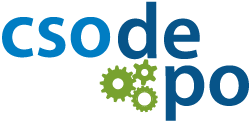Rule of Law Training Courses for Civil Servants
The Matra Rule of Law Training Programme is designed to strengthen institutional capacity in the field of rule of law within government organisations in Albania, Armenia, Bosnia-Herzegovina, Georgia, Kosovo, Macedonia, Moldova, Montenegro, Serbia, Turkey, and Ukraine. To this end seven training programmes are offered per year, each introducing the participants to best practices in a wide range of rule of law themes. Through interactive sessions combining theory, practical skills and study visits, policy advisors, members of the judiciary and other civil servants working in the government and justice sectors acquire the knowledge and skills necessary to drive reforms in their home countries. In addition, by taking part in the training programme, participants become part of a large transnational network of alumni, lecturers and relevant government departments in the Netherlands and in the target countries. This network offers a platform for learning, exchange and collaboration. As members of this network, all trainees are invited to participate in an Alumni Day, organised in one of the participating countries, between six to ten months after the training programme.
The Matra Rule of Law Training Programme is designed and delivered by the Netherlands Helsinki Committee, Leiden Law School, and The Hague Academy for Local Governance. It is financed by the Ministry of Foreign Affairs of the Netherlands, for a period of four years (2017- 2020).
Applications Currently Open:
Training programmes
The following training programmes are offered in 2019:
1. Integrity of Civil Servants (March 13 – 22, 2019)
The training programme aims to increase understanding of the international and EU framework for integrity policy and the national context of the participants´ countries. The course provides insight in the roles and responsibilities of the different actors in promoting integrity of civil servants. The seven building blocks of integrity will be discussed, as well as coherence of integrity policies with the overall financial and HR-policy. Examples from The Netherlands will be discussed and European organisations such as OLAF will present their work in the field of anti-corruption. In addition, knowledge and skills to develop a sustainable policy for the promotion of integrity of civil servants at different government levels will be enhanced. Special attention will be paid to obstacles and dilemma´s in the implementation process and how to overcome them.
2. Administration of Justice (March 13 – 22, 2019)
The training programme aims to increase understanding of the European standards relating to the right to a fair trial, more in particular in the area of criminal law, and of factors that determine the legitimacy, integrity and transparency of the administration of justice. Presentations on the Dutch approach in dealing with these standards will encourage the participants to reflect on the situation in their own country and to identify areas for reform. In addition, knowledge and skills to develop a sustainable policy for the improvement of the administration of justice will be enhanced. Special attention will be paid to obstacles and dilemmas in the implementation process and how to overcome them.
3. Human Rights & Minorities (May 15 – 24, 2019)
The promotion and protection of human rights is inextricably linked to the rule of law. However, despite existing legislation, the protection of vulnerable groups such as ethnic minorities, LGBTI, and women remains problematic. This requires continuous reflection on the importance of human rights in a wide range of policy areas, on the relationship of countries with the European Court of Human Rights, and on the necessity to take EU guidelines and international human rights treaties into account when drawing up policies and legislation.
4. Decentralisation and Citizen Participation (June 19 – 28, 2019)
Decentralisation brings decision-making processes closer to citizens. Thus, it can contribute to more participatory, transparent and responsive governance. However, it raises a number of questions that should be addressed. How should inter-administrative relations be managed in a decentralised system? How can sub-national governments be established that have the capacity to effectively provide services in an inclusive manner? How does one balance fiscal, political and administrative decentralisation?
5. Public Finance Management (t.b.a)
A healthy state of public finance requires careful management of government spending, revenues, loans and debts. Deficits and debts should remin within the limits set by international and domestic standards. Key values should be legal certainty and predictability, transparency, integrity, effective policies to prevent corruption and fraud, and also decentralisation.
6. Freedom of the Media (t.b.a)
A free press is crucial for democracy. As a public watchdog the press can provide a platform for public debate; where necessary it can denounce instances of maladministration. But the freedom of expression carries with it duties and responsibilities. How does one deal with situations where the press is used for propaganda purposes or for the distribution of ‘fake news’? What is the role of social media?
7. Public Procurement (November 6 – 15, 2019)
In the EU government spending on goods and services amounts to approximately 20% of the GDP. Because of the huge financial stakes and the need for close interaction between the public and the private sectors, it is crucial to set clear rules for public procurement. This requires continuous reflection on fair and appropriate procedures that guarantee equal opportunities among competitors.
The following training programme will be offered again in the training cycle of 2020:
8. Detention and Alternative Sanctions (2020)
A rising rate of incarceration, including pre-trial detention, causes a financial burden on national governments and impacts social cohesion. This raises a number of questions that should be addressed: how can prison conditions be improved? What increased risks do youth in detention face? What are possible alternatives to detention and how can these, and improved re-integration strategies, have a positive effect on perpetrators, victims and society as a whole?
